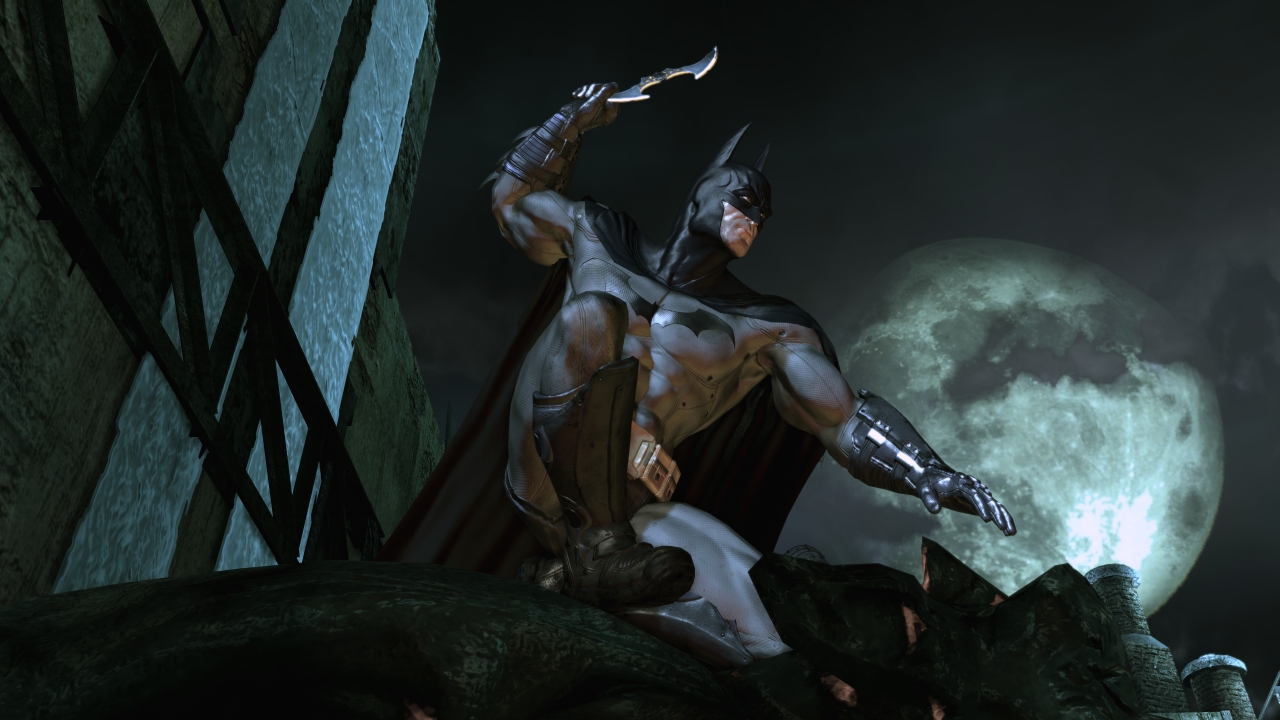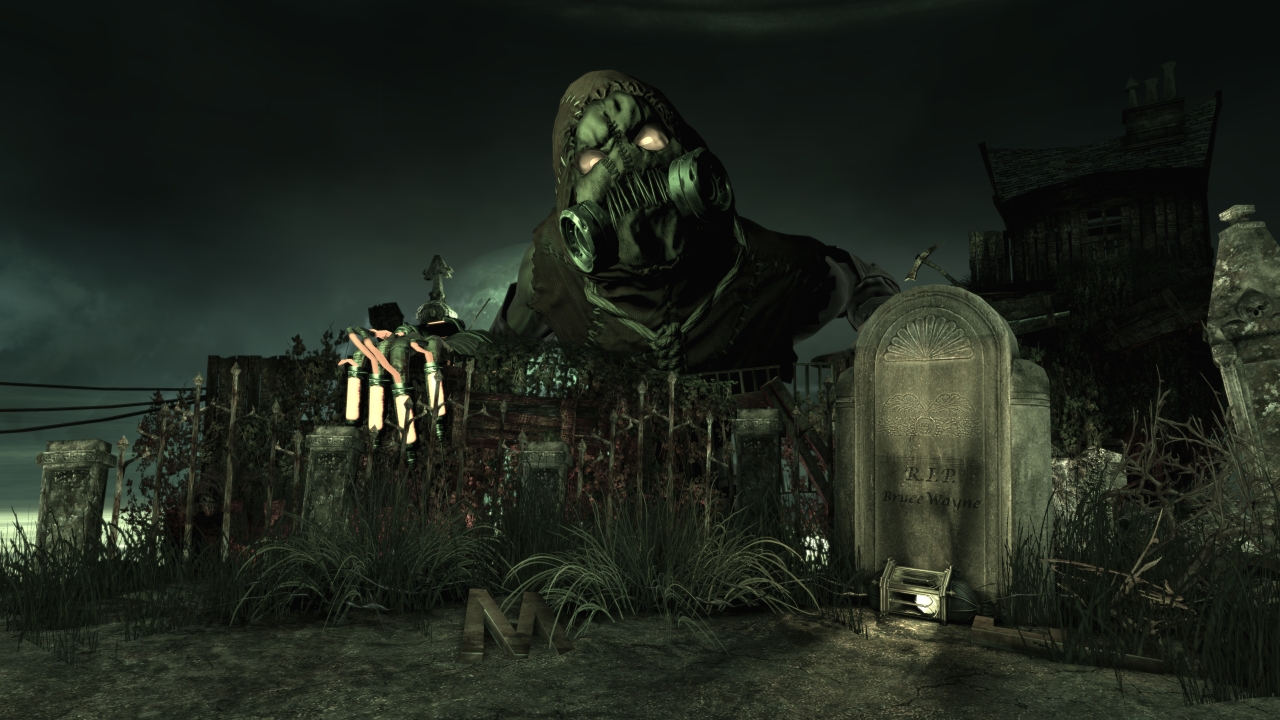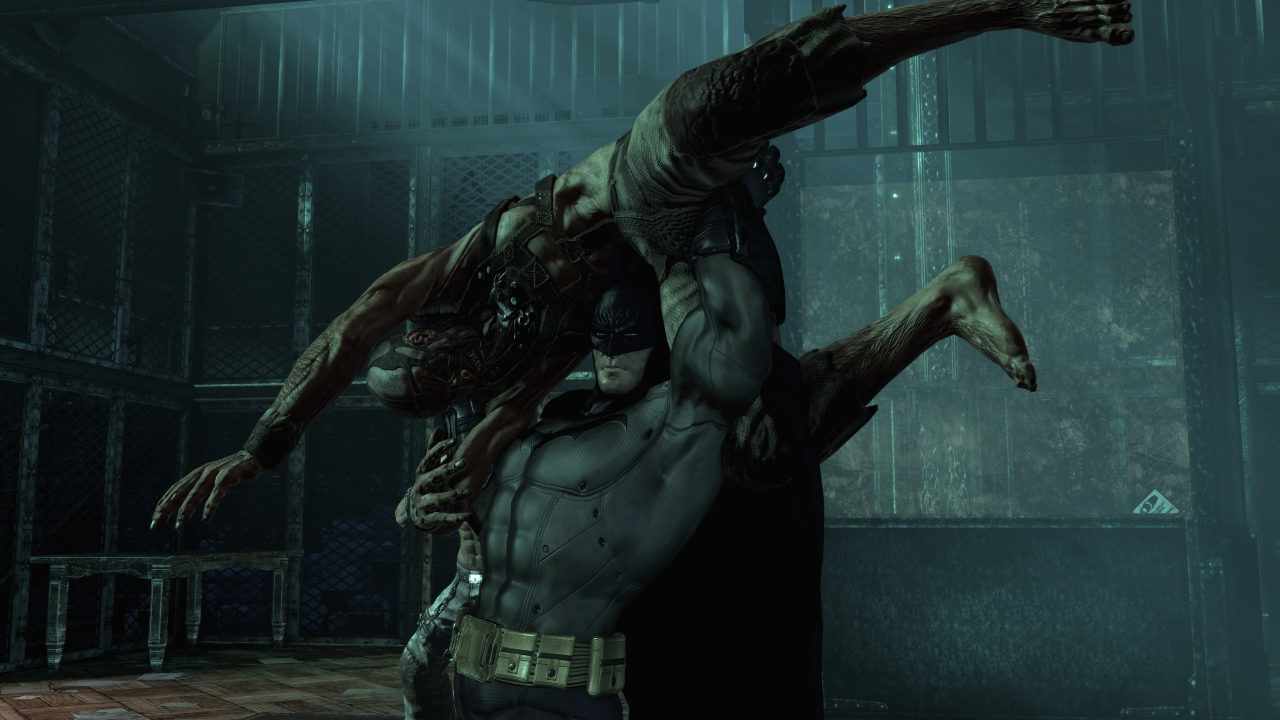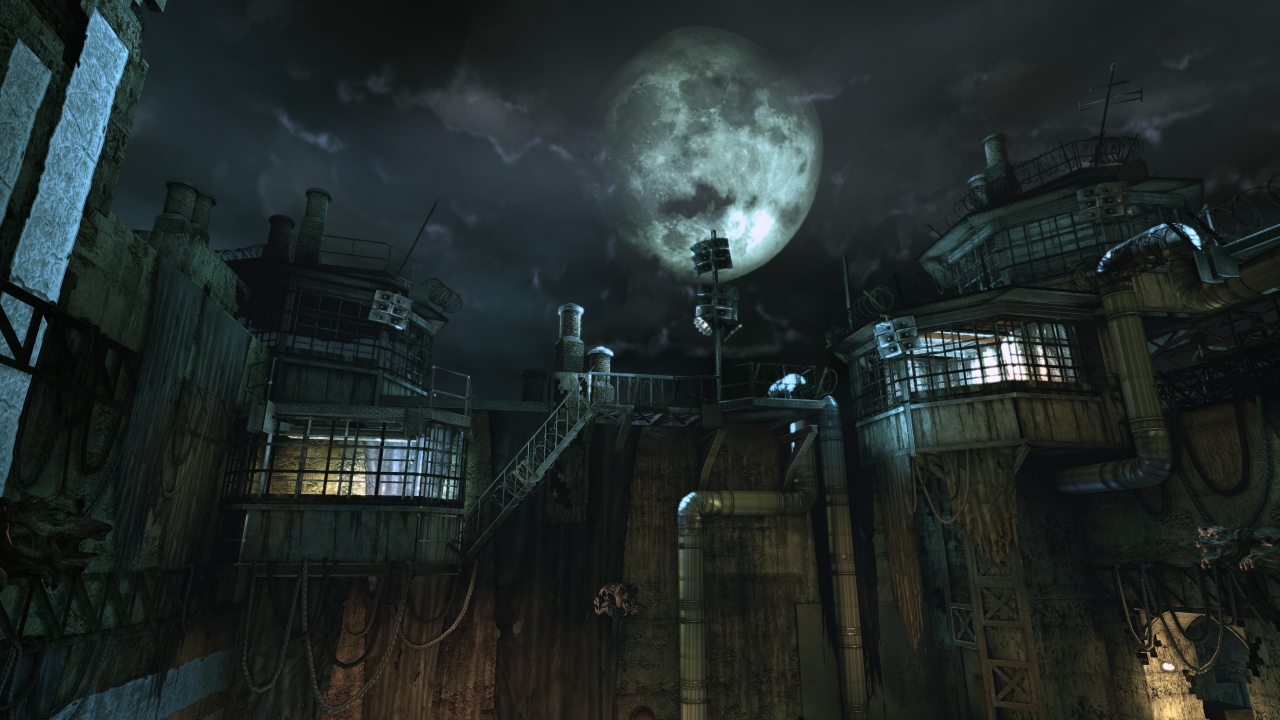How an escape to Batman Arkham Asylum helped me identify and seek help for depression
As The Batman movie hits cinemas, here's how Arkham Asylum helped me through my darkest days

Batman Arkham Asylum was an unlikely video game to help me identify the dark thoughts in my head. But nothing has worked out as expected with regards to my mental health over the last 14 years. Well, actually, that's untrue. The one constant that's helped me cope, heal, and reassess some very specific, sensitive, and idiosyncratic issues tied to my outlook and mindset is video games. In my darkest moments, when the world around me hasn't made sense or when I've struggled to turn to my hugely understanding family and friends, the medium has provided me with a safe space to untangle my thoughts. And The Batman has been a central part of that journey.
Trigger warning: the following article explores sensitive subject matter, including suicide, depression, anxiety and mental illness
The dark night

I enter my parents' house and my mother is upstairs laughing. No, hang on, she's crying. Bawling inconsolably as my father leads me from the hall into the living room. I'm confused. My mind is racing. But before I can even begin to wrap my head around what's happening, my father says: "Your uncle hanged himself today."
On May 12, 2008, my uncle, my mother's only brother, killed himself. That is a sentence that, no matter how many times I say it aloud or write it down, I will never quite get used to. I had just turned 22 when my uncle died, and the brutal nature of his passing set me off on my own mental health journey – a path that's since seen me diagnosed with depression and anxiety disorder, and prescribed a course of daily antidepressant medication that I still take today. Video games played an integral role in this process, especially in the early days, with Rocksteady Studios' Batman: Arkham Asylum being pivotal in my decision to first seek professional help.
The thing about depression is, you don't see it coming. It's a gradual thing. It creeps into your life when you're not looking, and, if that depression is the result of trauma, as medical professionals eventually told me, it's easy to pin your emotions on something else. In the immediate wake of my uncle's death, I identified the dark thoughts, the mood swings, and the unrelenting loneliness and disconnectedness I felt day-to-day as simple by-products of bereavement. At 22 years of age, I also spent a lot of time clubbing, holidaying in Ibiza, and generally spending Monday to Thursday hungover – a self-deprecating cycle that made addressing my mindset even harder.
Throughout this period of personal uncertainty, I threw myself into video games. I've played video games my entire life, but against an increasingly unpleasant reality, the fantastical worlds of BioShock, Fallout: New Vegas, and Red Dead Redemption offered much welcomed escapism, as did wandering the lonely halls of Arkham Asylum while filling the shoes of a superhero. To the latter end, there's likely all sorts of metaphors that could be drawn between my state of mind back then and Batman's penchant for stalking the shadows; of Rocksteady's dark and moody interpretation of the character, or the fact the game itself is set in an actual mental institution. But none of these things were conscious factors I considered while taking solace in the game.

"I'm from Scotland, where two people in a population of just five million die by suicide every single day... in the USA, an average of 132 people die by their own hand every 24 hours."
Instead, it was the masterful ways in which Batman: Arkham Asylum balances its action and downtime that captured my heart and imagination – where the Dark Knight can be beating down hordes of faceless thugs one minute, and then strolling pensively in and around the grounds of its beautifully grim and tranquil setting the next. There's also a hypnotic rhythm to Rocksteady's combat mechanics that's cathartic, all the while serving players shots of dopamine via crunching sound effects and slow-motion animations that are unreasonably satisfying.
Sign up to the GamesRadar+ Newsletter
Weekly digests, tales from the communities you love, and more
Despite the omnipresent threat posed by the Joker, Bane, Poison Ivy, and Killer Croc among others, I felt warm and safe every time Arkham welcomed me back through its wrought iron gates. So much so, that I spent more time calculating what was going on in my head inside the virtual prison walls than I did in the real world.
One of the biggest hurdles I found when facing up to my own depression was recognising it at all. Before my uncle died, I knew what depression was. I'd read about it, I understood what the word meant, and, clearly, I appreciated the drastic actions people with depression sometimes take. I'm from Scotland, where two people in a population of just five million die by suicide every single day. In England and Wales, an average of 18 people take their own lives in the same window. In Ireland, 340 people killed themselves in 2020. And in the USA, an average of 132 people die by their own hand every 24 hours.
Which is shocking, obviously, but those sobering statistics can't prepare you for dark feelings on a personal level. They're hard to identify in practice, and easy to misappropriate with other things in your life. When I finally sought formal professional help for how I was feeling in 2014, first via my GP and latterly a counsellor, I'd taken inspiration from a number of video games that tackle mental health issues head-on, such as Will O'Neill's Actual Sunlight, Zoe Quinn's Depression Quest, Vander Cabalero's Papo & Yo, and Matt Gilgenbach's Neverending Nightmares. But way back, back when I was still coming to terms with everything that was bouncing around inside my head, Batman: Arkham Asylum provided much-needed personal asylum that I just couldn't get anywhere else in my life at the time. The game offered the space to process my thoughts, and realise something wasn't right. In essence, providing the first step in my long road to reaching more stable ground in mental health terms.
Endure, Master Wayne

To be absolutely clear: I am not a mental health professional, and anyone who aligns with any of the above should do whatever they can to open up to a friend, a loved one, a colleague or a stranger, or seek professional help themselves. I only speak from lived experience, but firmly believe video games have enriched my life, as a distraction and a coping mechanism during some of my darkest days.
The reason I felt moved to write about my very personal experiences with Batman: Arkham Asylum today is, of course, because The Batman movie hits cinemas worldwide, and is said to explore a darker, more violent side of the Caped Crusader's persona and story – even more so than Christopher Nolan's esteemed Dark Knight trilogy – a hero who is, in essence, troubled by long-term grief.
I'm sure many of us can relate to that last part, and I think it's important that pop culture characters, even superheroes, are portrayed with everyday vulnerabilities whenever possible. I couldn't necessarily relate to Rocksteady's interpretation of The Bat while fighting his way through Arkham Asylum, but it was through the lens of a life-saving superhero that I first identified my own depression, a process that started me on the path toward seeking professional help. And with my own wellbeing in mind, that seems pretty fitting.
If you or anyone you know has been affected by the issues discussed in this article, helpful information can be found via the Samaritans, the Mental Health Foundation (UK), and the National Suicide Prevention Lifeline (US).

Joe Donnelly is a sports editor from Glasgow and former features editor at GamesRadar+. A mental health advocate, Joe has written about video games and mental health for The Guardian, New Statesman, VICE, PC Gamer and many more, and believes the interactive nature of video games makes them uniquely placed to educate and inform. His book Checkpoint considers the complex intersections of video games and mental health, and was shortlisted for Scotland's National Book of the Year for non-fiction in 2021. As familiar with the streets of Los Santos as he is the west of Scotland, Joe can often be found living his best and worst lives in GTA Online and its PC role-playing scene.


